
People Are Fascinated By This Thread Pointing Out Common Errors In Thinking Caused By These 12 Cognitive Biases
Our thought process is influenced by the experiences we’ve had, by what we believe in, whose words we trust and many more factors. However, if you want to broaden your horizons, you have to break through your cognitive biases.
The first step to do that is to be aware of them. That is why Twitter user Ben Meer shared 12 cognitive biases that are pretty common and explained what they are so you can stop yourself from sliding into the systematic thinking you are used to.
More info: Twitter
Personal development coach brought Twitter’s attention to a thing called cognitive bias and why it is important to be aware of it
Image credits: Christina Morillo (not the actual photo)
Very Well Mind defines cognitive bias as “a systematic error in thinking that occurs when people are processing and interpreting information in the world around them and affects the decisions and judgments that they make.” So you misjudge something and then make a wrong conclusion that can affect various aspects of your or somebody else’s life.
Cognitive bias forms when your brain tries to simplify information based on your experiences. Tech Target adds that “The filtering process is a coping mechanism that enables the brain to prioritize and process large amounts of information quickly.”
Cognitive bias is caused by the human brain wanting to simplify decision making and creating shortcuts based on our experiences and preferences
Image credits: SystemSunday
Image credits: SystemSunday
Nobody can escape it, because imagine if you had to consider every possible option, opinion and possibility. Your brain would overload. You wouldn’t even be able to do that, because our knowledge is limited and we work with what we have.
That’s why we assume, rely on our emotions and give into social pressure. This bias isn’t always bad–Simply Psychology claims that they “can be beneficial because they do not require much mental effort and can allow you to make decisions relatively quickly.”
But just like conscious bias, which is when we favor someone or something at the expense of someone or something else knowingly, “unconscious biases can also take the form of harmful prejudice that serves to hurt an individual or a group.”
Which leads to mistakes in our decisions, unfair judgement and incorrect beliefs as the brain doesn’t consider the possibilities that are outside our experience
Image credits: SystemSunday
Image credits: SystemSunday
We can agree that while cognitive biases are shortcuts, which is usually a positive thing, they do more harm than good because they affect not only our small decisions, everyday interactions, but the bigger ones as well because you need both sides of the story, not just the one you like more.
So the aim here is to get rid of them. This was the purpose of Ben Meer sharing 12 of the more common ones that many people have. The Twitter user helped us to take the first step and acknowledge that we have cognitive biases as the examples he provided are pretty familiar as if we are the people he talks about.
He ended the thread by saying that “Awareness of cognitive biases will make Twitter a kinder place” because they make us judgmental and blind to others’ experiences.
It is impossible to get rid of them because they make our brain efficient, but recognizing them starts from being aware of them
Image credits: SystemSunday
Image credits: SystemSunday
According to World Economic Forum, there are more than 100 cognitive biases, but the cognitive biases Ben mentioned are Fundamental Attribution Error, Dunning-Kruger Effect, Confirmation Bias, Curse of Knowledge, Availability Heuristic, Automation Bias, Law of Triviality, Survivorship Bias, IKEA Effect, Third-Person Effect, Zeigarnik Effect and Spotlight Effect.
Another quite common one is the placebo effect, which makes you think that a medicine works even if it’s just a sugar pill because you believe it is real medicine. Then there is the backfire effect, which makes your beliefs even stronger when someone tries to challenge them. Or you may have declinism bias, which makes you feel that the past was better than the present, so it looks like the future will get even worse.
Ben Meer provides us with 12 different cognitive biases, explains how they manifest and gives an example in which we can recognize our own behavior
Image credits: SystemSunday
Image credits: Andrea Piacquadio (not the actual photo)
These cognitive biases include Law of Triviality, which means that we ignore the real problem by spending time on what isn’t as important
Image credits: SystemSunday
Unfortunately, you can’t get rid of cognitive biases completely because “The human mind seeks efficiency, which means that much of the reasoning we use to conduct our daily decision-making relies on nearly automatic processing,” according to Healthline.
But what we can do is recognize them and try to prevent them from influencing our behavior, judgment and decision. This is what people mean when they say that knowledge is power, because it all starts from being aware of them and understanding what they are.
Image credits: SystemSunday
Or the IKEA effect that was named after the brand, which makes customers build their own furniture as that makes them appreciate the thing more
Image credits: SystemSunday
Image credits: SystemSunday
The following step that Healthline suggests to take is to question yourself: “If you’re in a situation where you know you may be susceptible to bias, slow your decision-making and consider expanding the range of reliable sources you consult.”
Also, go for help to other people and make sure they have different points of view and experiences so they can cover the points you may have overlooked. At the same time, you may not want to know certain things. “To cut down on the chances that you’ll be influenced by gender, race, or other easily stereotyped considerations, keep yourself and others from accessing information on those factors.” Lastly, use checklists, algorithms, and other objective measures.
Of course, every bias might have more specific ways to avoid or minimize it, but in general, recognizing your own thinking patterns, trying to consider if there’s anything you overlooked and listening to others is what frees you from them.
While it is impossible to entirely avoid them, being aware of them, trying to think of other possibilities and listening to others’ viewpoint help
Image credits: SystemSunday
Image credits: SystemSunday
Image credits: Alina Levkovich (not the actual photo)
Did you recognize your own behavior in the examples that Ben Meer illustrated? Have you ever heard of cognitive bias and which ones did you know about? Have you tried to battle them or point out when someone else was displaying them? Tell us if you learnt something from this article today or teach us something new in the comments.
Other Twitter users found the thread interesting and liked the simple explanations
Image credits: matt_gray_
Image credits: KurtisHanni
Image credits: jjpbouman
Image credits: IGamecast
Image credits: theseancrow
Image credits: Acynthia_
Image credits: InFlooent
Hindsight bias is one of those effects that gets often overlooked but has a huge impact in our everyday lives. It means that we tend to judge past situations too harshly because we already know the outcome and thus for the hints connected to the issue seem to be more obvious than they actually are. This is a huge problem in giving an experts statement in a case of malpractice for example, bit it's also a problem when your boss evaluates your work. They know what had happened and what was the outcome, so they're biased to the outcome and see the hints less ambivalent. In tests people asked to evaluate a situation without knowing the cause/outcome usually tended to come to the same conclusion than the person making a mistake unless it was indeed neglect involved, but people who did know the outcome tended to assume neclectful behaviour even though there were other explanations for the hints. Even knowingly trying to avoid hindsight bias doesn't always help.
This one drives me crazy, even though I know I'm guilty of it. For example, a few years ago my city was about the be hit by a tornado - there were a few funnel clouds, tornado warnings, lots of people getting upset and worried, etc. but ultimately nothing happened. Then all these geniuses start posting about how stupid we all were for worrying when nothing really happened. You can explain to them til you're blue in the face that we didn't know the outcome at the time, but they just go on acting like they're so much smarter than you.
Load More Replies...Be honest, how many of you thought "If only people learned these, I wouldn't have to put up with so many idiots!"
My psychologist noted that I do the opposite of Fundamental Attribution Error. For example if Jane is late it is because she got stuck in traffic but if I am late it is because I am lazy. Yep, we are working on this.
I'm the same way. I'm much more forgiving of other people's mistakes than I am of my own.
Load More Replies..."If Jane is late to work she must have a reason. If I'm late to work I'm undeserving of a job and should hurt myself since I don't actually have the guts to off myself". That's how it actually is irl.
A coach once remarked some other bias, I don;t knoow if it's an official rule, but I find it's true quite often: We tend to judge others for the outcome, and ourselves by the intention. So, Susan didn't do her homework, she must be lazy. I didn't do it either, but I was really going to but just couldn't because of whatever. So this bias makes me think of myself as less lazy that Susan...
Hindsight bias is one of those effects that gets often overlooked but has a huge impact in our everyday lives. It means that we tend to judge past situations too harshly because we already know the outcome and thus for the hints connected to the issue seem to be more obvious than they actually are. This is a huge problem in giving an experts statement in a case of malpractice for example, bit it's also a problem when your boss evaluates your work. They know what had happened and what was the outcome, so they're biased to the outcome and see the hints less ambivalent. In tests people asked to evaluate a situation without knowing the cause/outcome usually tended to come to the same conclusion than the person making a mistake unless it was indeed neglect involved, but people who did know the outcome tended to assume neclectful behaviour even though there were other explanations for the hints. Even knowingly trying to avoid hindsight bias doesn't always help.
This one drives me crazy, even though I know I'm guilty of it. For example, a few years ago my city was about the be hit by a tornado - there were a few funnel clouds, tornado warnings, lots of people getting upset and worried, etc. but ultimately nothing happened. Then all these geniuses start posting about how stupid we all were for worrying when nothing really happened. You can explain to them til you're blue in the face that we didn't know the outcome at the time, but they just go on acting like they're so much smarter than you.
Load More Replies...Be honest, how many of you thought "If only people learned these, I wouldn't have to put up with so many idiots!"
My psychologist noted that I do the opposite of Fundamental Attribution Error. For example if Jane is late it is because she got stuck in traffic but if I am late it is because I am lazy. Yep, we are working on this.
I'm the same way. I'm much more forgiving of other people's mistakes than I am of my own.
Load More Replies..."If Jane is late to work she must have a reason. If I'm late to work I'm undeserving of a job and should hurt myself since I don't actually have the guts to off myself". That's how it actually is irl.
A coach once remarked some other bias, I don;t knoow if it's an official rule, but I find it's true quite often: We tend to judge others for the outcome, and ourselves by the intention. So, Susan didn't do her homework, she must be lazy. I didn't do it either, but I was really going to but just couldn't because of whatever. So this bias makes me think of myself as less lazy that Susan...

 Dark Mode
Dark Mode 

 No fees, cancel anytime
No fees, cancel anytime 








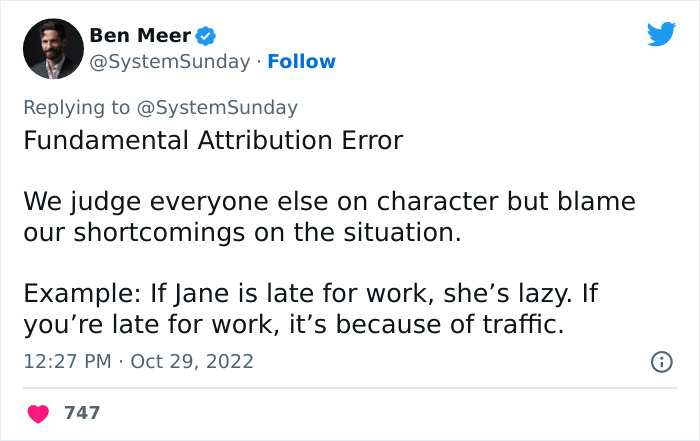
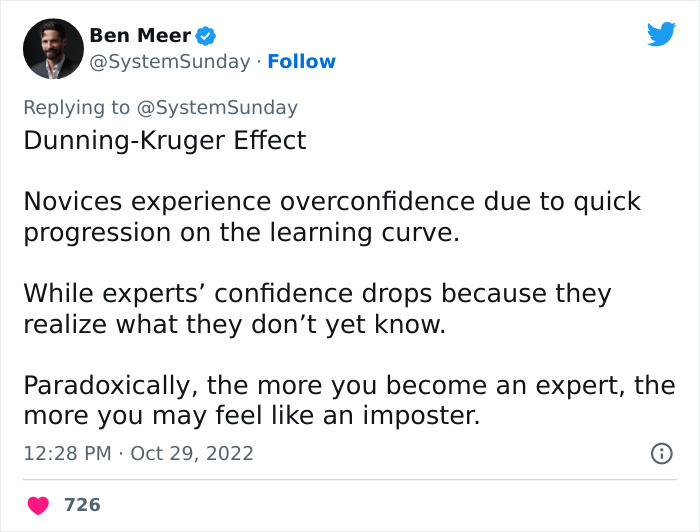
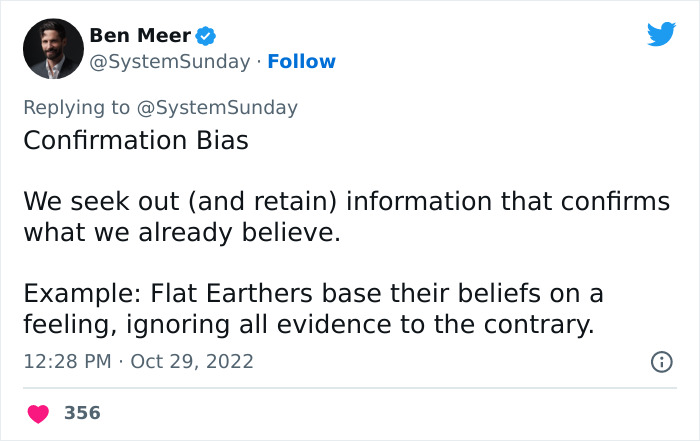
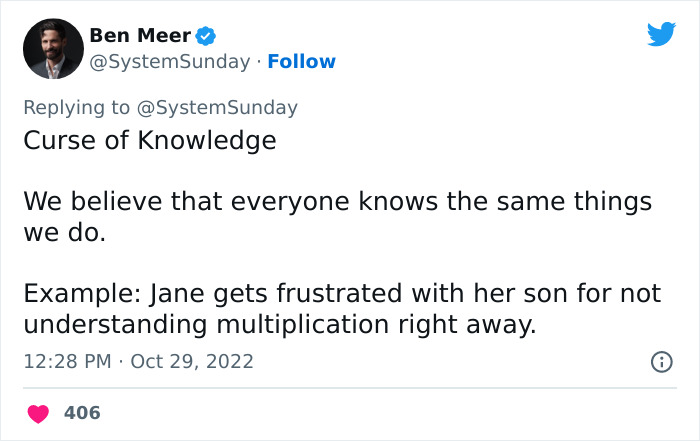
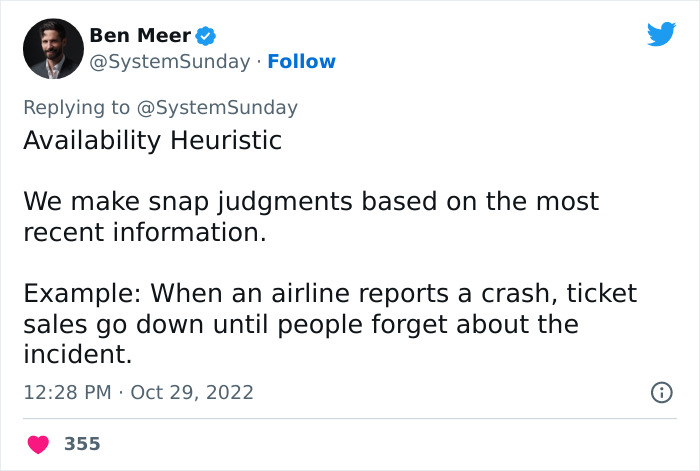
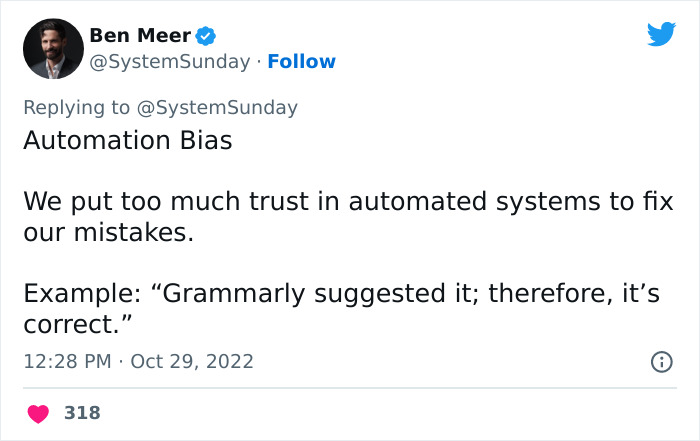

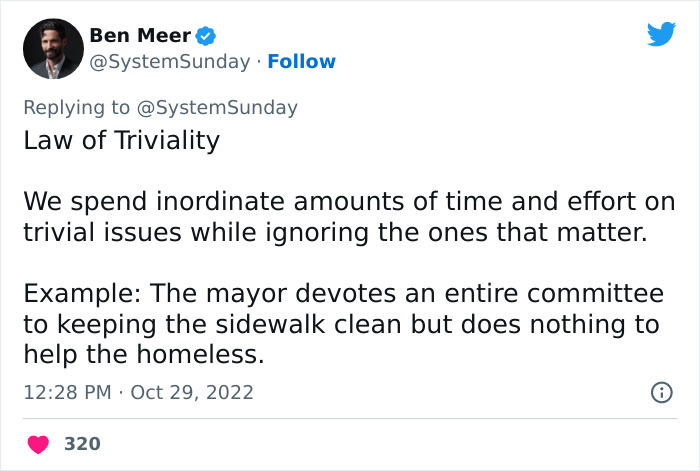
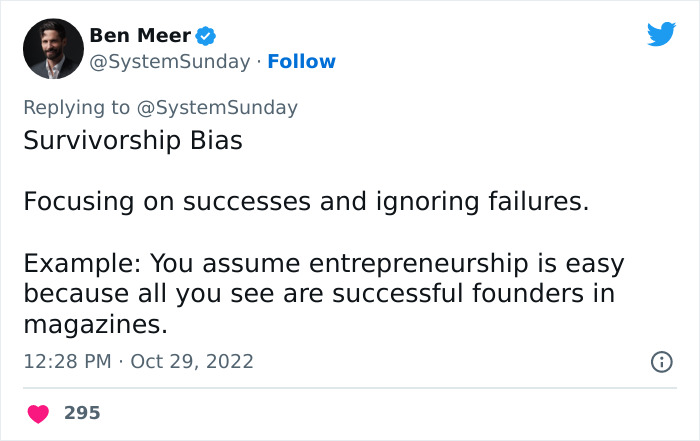
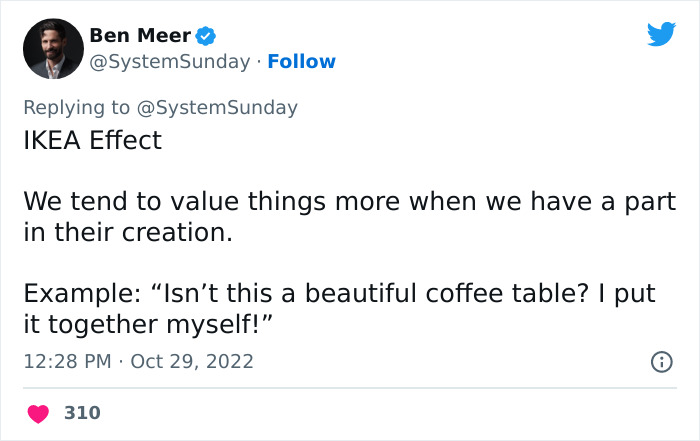
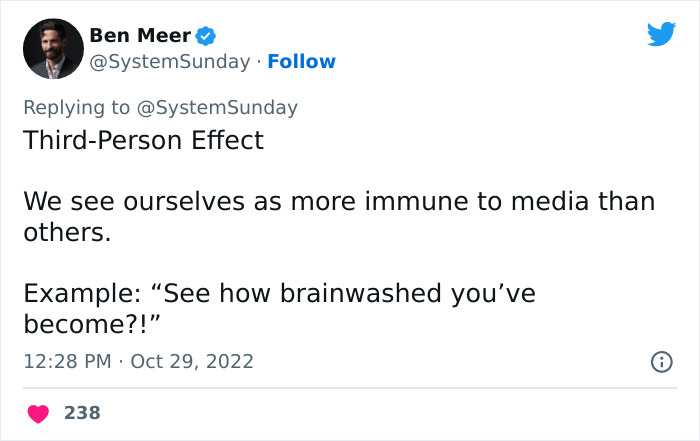
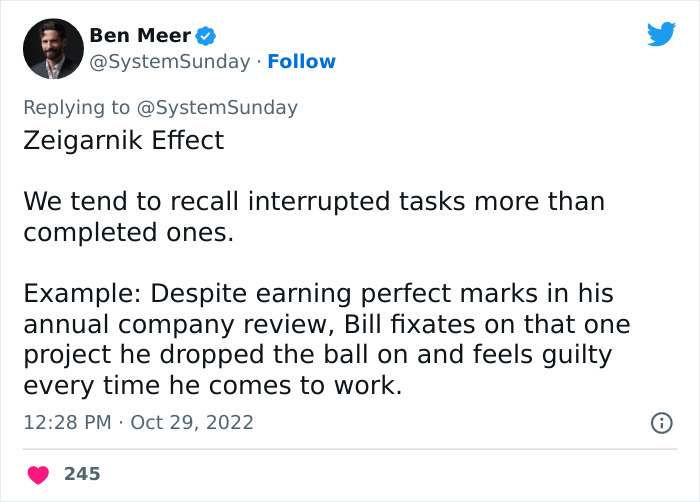
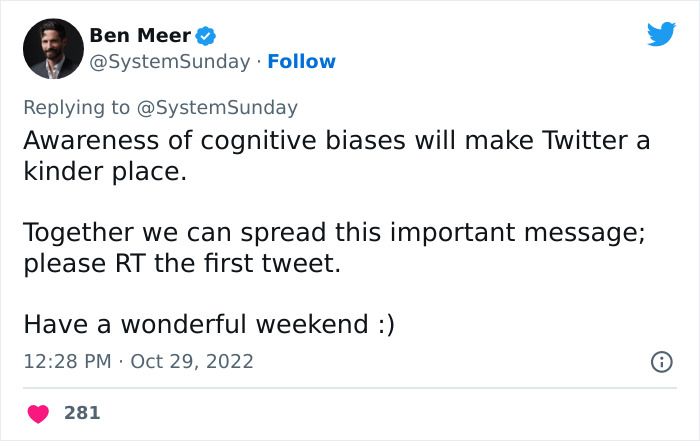

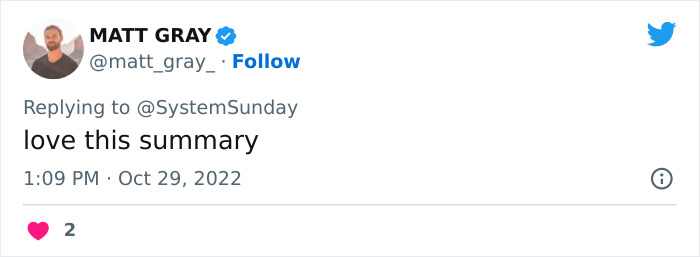

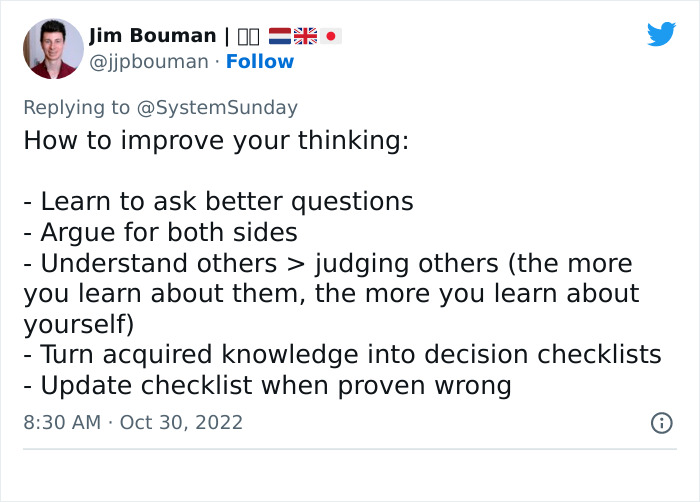
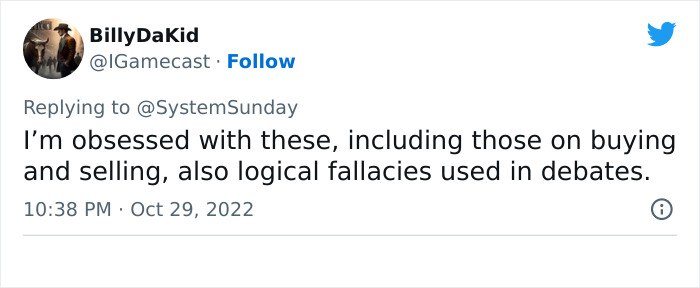
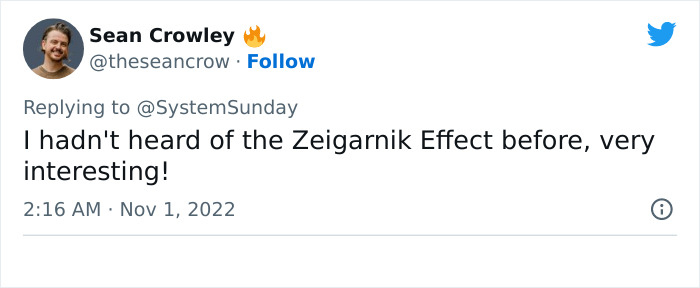
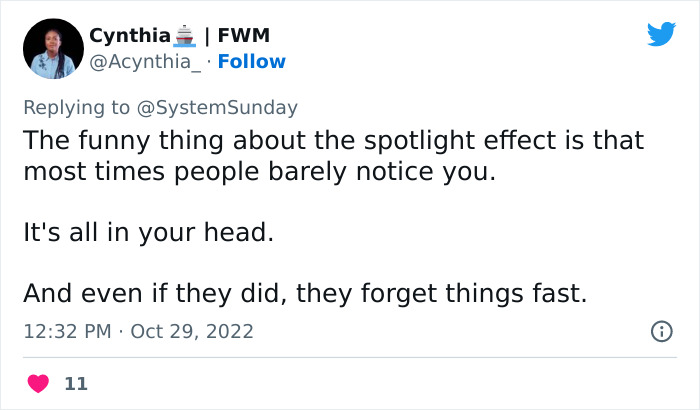
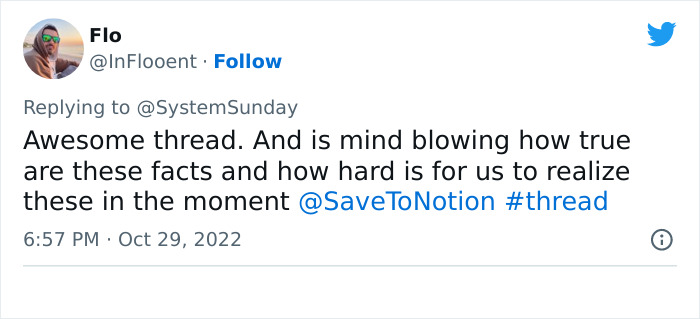






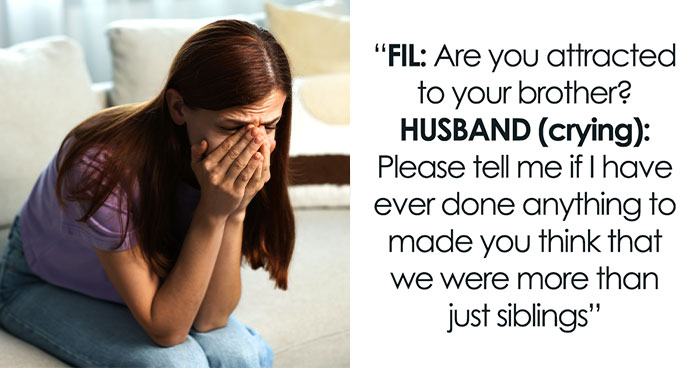
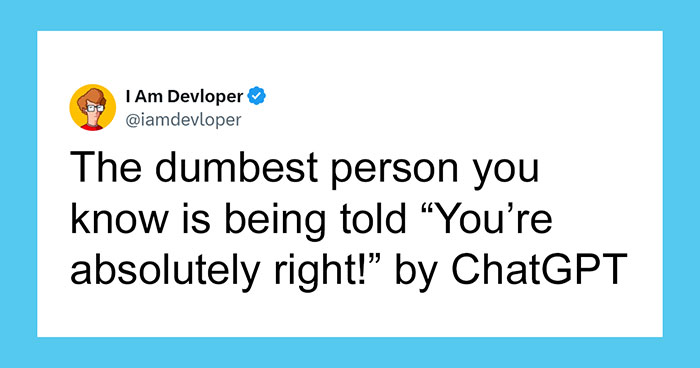
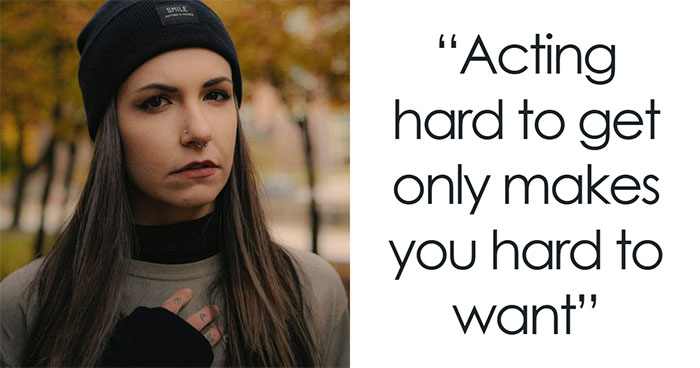

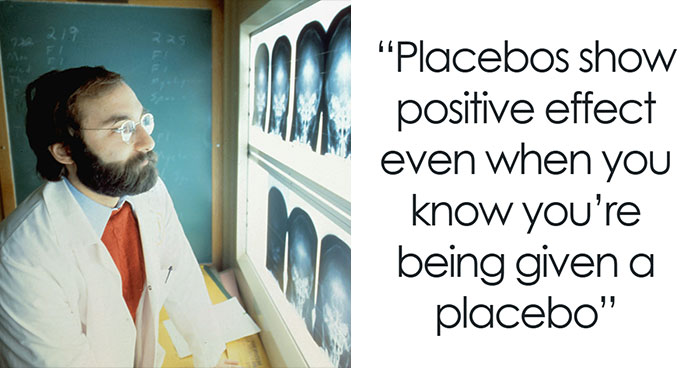




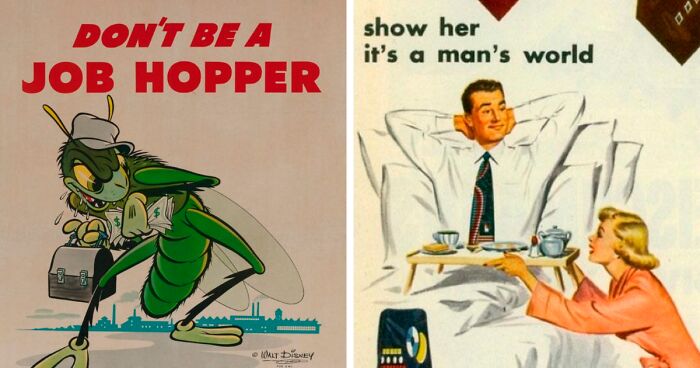
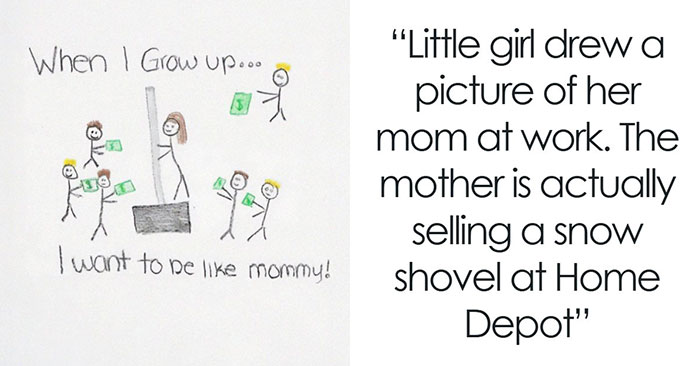

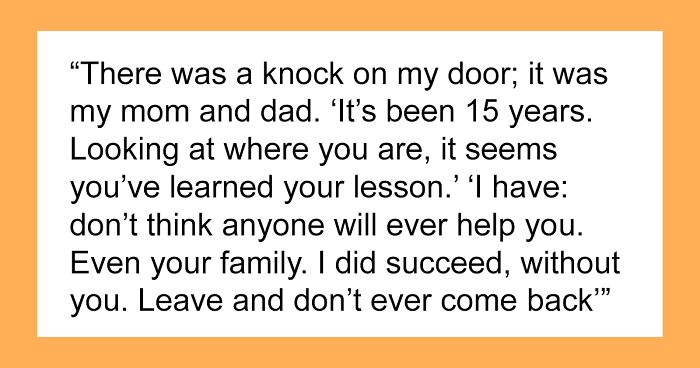

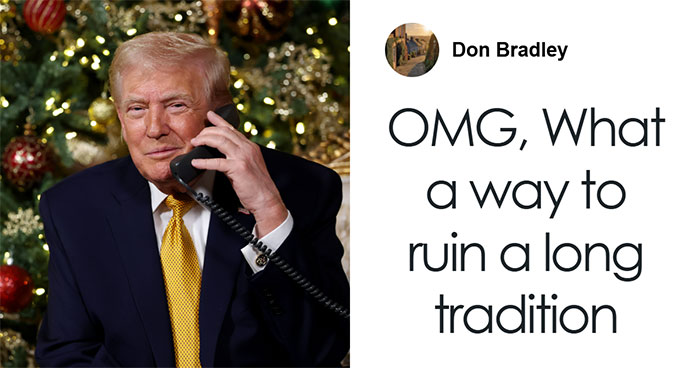










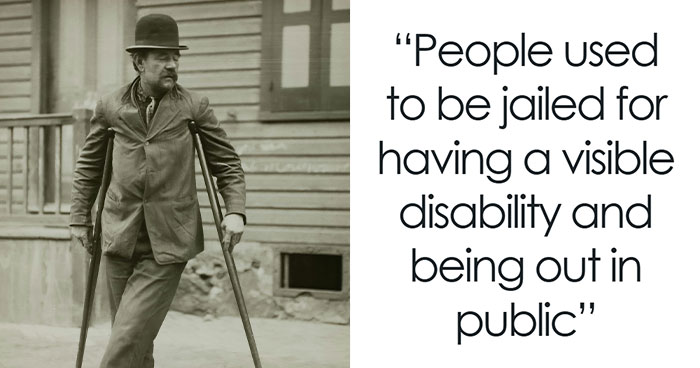












150
30